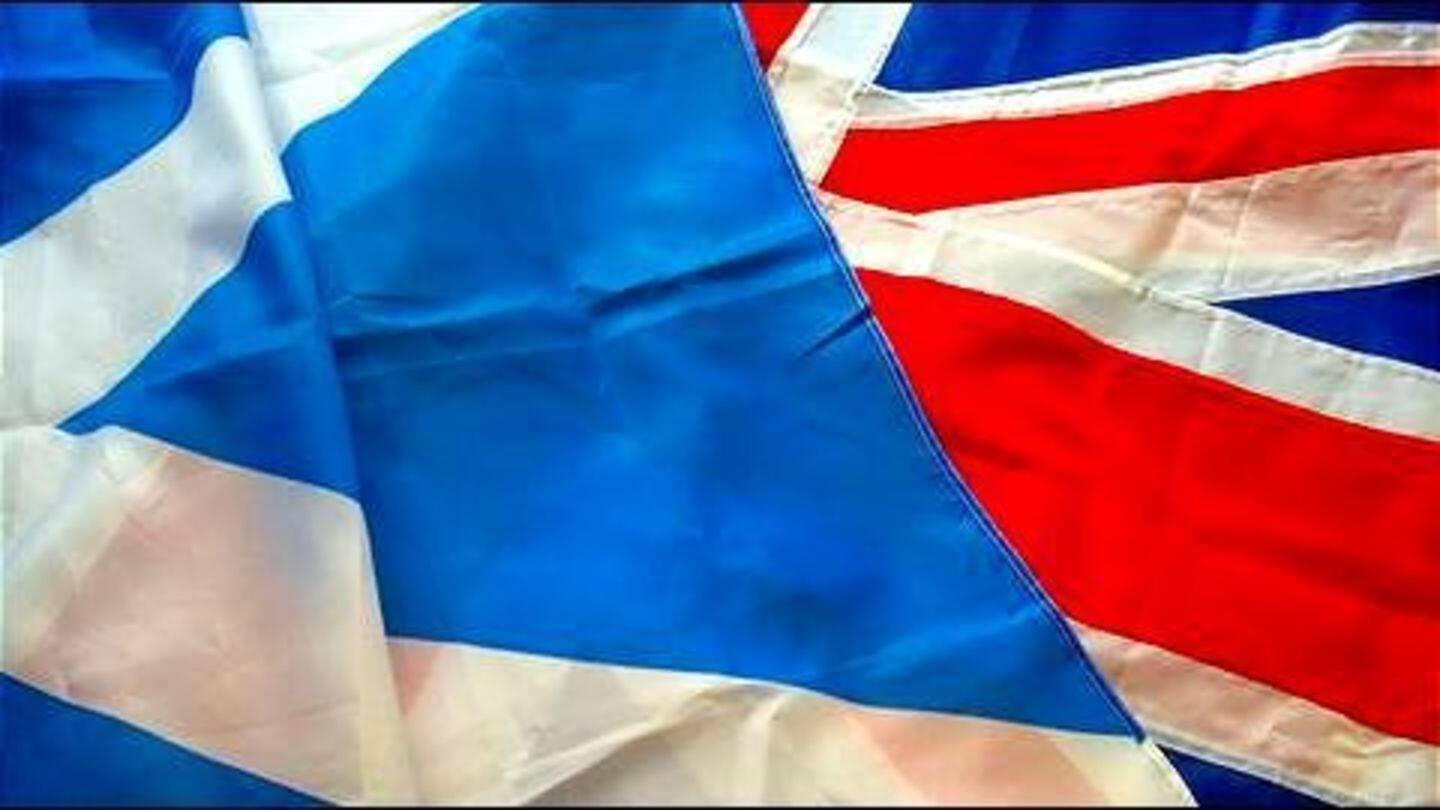
Scottish Independence: Scotland could be independent, says Lord King
What's the story
Lord Mervyn King, ex-Governor of the Bank of England, said Scotland "could be an independent country" but would "risk" taking a hit to its public finances if oil revenues fall. Dismissing fears of the country being too small and which currency would be used, he said he didn't see major problems. However, British PM Theresa May indicated Scottish independence referendum demand "will be rejected."
Introduction
The proposed Scottish independence referendum
After Britons voted to leave the European Union in Jun'16, Scotland's First Minister Nicola Sturgeon proposed a second referendum on Scottish independence be held. Though 52% Britons wanted to leave EU, 62% Scots wanted to remain. There has been political debate and negotiation about whether an independence referendum should be conducted or it is possible for Scotland to maintain EU ties even after Brexit.
Information
The first independence referendum
The first Scottish independence referendum was held in Sep'14 in which majority of people voted against the proposal. One of the reasons cited by those opposed to the independence was that it would "endanger "Scotland being a part of EU.
March 2017
Now is not the time: UK PM Theresa May
Sturgeon said she would seek the approval of Scotland's Parliament to negotiate with the UK Government for a "Section 30" order and enabling a second independence referendum. However, the UK Prime Minister Theresa May said "now is not the time", indicating the proposal for a second independence referendum was ill-timed. She said the focus should be "working together, not pulling apart" for Brexit negotiations.
Quote
Scotland could be an independent country
Lord King stated: "It (Scotland) has the people, it has a capital city, a history, and culture, it could be an independent country. The question is, does it want to be given the consequences of it?"
Obsessed Politicians
Obsessed politicians ignoring trade deficit and NHS funding
On Brexit, Lord King said "obsessed politicians" ignoring trade deficit and National Health Service funding was the "biggest worry". While Scotland's First Minister Nicola Sturgeon is determined to have an independence referendum, Theresa May blocked the demand. Lord King, who headed the Bank of England during 2003-13, said plenty of small countries exist, suggesting there would be no major problems if an independent Scotland exists.
Information
High volatility and market turbulence
Ahead of the first Scottish independence referendum in 2014, Fitch Ratings had warned that any plans for an independent Scotland to continue the use of the pound without a shared fiscal and banking union with the UK could risk "high volatility and market turbulence".
Concerns
Issues facing the UK in future
Lord King is concerned about issues facing the UK in future. He said the biggest problems the UK faces now are not Brexit-related but how it can reduce trade deficit and save enough as a country to pay for pensions. How the UK is going to save enough to pay for care for the elderly and finance NHS are only some of the concerns.